I'm learning Clojure using "Clojure From the Ground Up" by Kyle Kingsbury.
The VERY FIRST exercise is to write a Clojure routine to test if a given string is a palindrome.
I wrote something recursive:
==================================================
I put in the various println statements to debug it.
Then I discovered Cursive has a debugger! I tried using it. I can't get the debugger to stop at a breakpoint.
I pull down Run --> Debug... and get the following console output:
==================================================
<>
Connected to the target VM, address: '127.0.0.1:5994', transport: 'socket'
Java HotSpot(TM) 64-Bit Server VM warning: Sharing is only supported for boot loader classes because bootstrap classpath has been appended
Top 1234564321
Nil? 1234564321
Equal 1234564321
Top (2 3 4 5 6 4 3 2)
Nil? (2 3 4 5 6 4 3 2)
Equal (2 3 4 5 6 4 3 2)
Top (3 4 5 6 4 3)
Nil? (3 4 5 6 4 3)
Equal (3 4 5 6 4 3)
Top (4 5 6 4)
Nil? (4 5 6 4)
Equal (4 5 6 4)
Top (5 6)
Nil? (5 6)
Exception in thread "main" Syntax error compiling at (C:\Users\Joe Us-er\OneDrive\Chit\CChit\palin\src\palin\palin.clj:24:1).
<>
Disconnected from the target VM, address: '127.0.0.1:5994', transport: 'socket'
Process finished with exit code 1
==================================================
I don't know which is information and which is just data. For now, WHY didn't my program stop at any breakpoints? Thank you.
%%%%%%%%%%%%%%%%%%%%%%%%%%%%%%%%%%%%%
1/1/2020 OK. I took your advice and wrote something simpler. And STILL no breakpoints. Here's a screen shot:
Note that "Top" and "Bottom" both get println'd, but no breakpoints get hit.
&&&&&&&&&&&&&&&&&&&&&&&&&&&&&&&&&&&&&&
1/2/2020 Here's 'stupid' again, with no syntax errors, and still not hitting any breakpoints.
Is there some sort of special namespace I should be referencing for debugging? I seem to remember reading something about that that I didn't understand.
Or is that "64-bit server VM warning" message significant?


